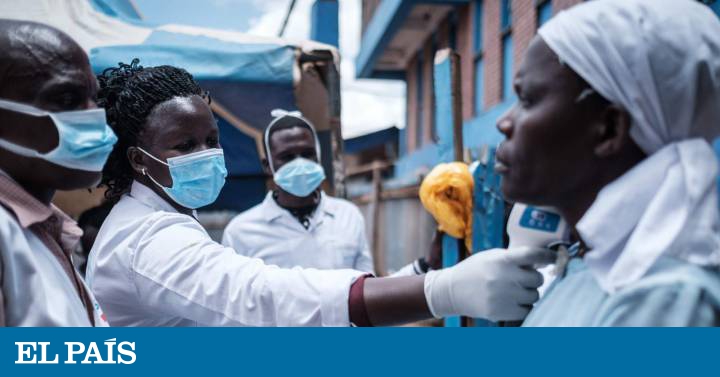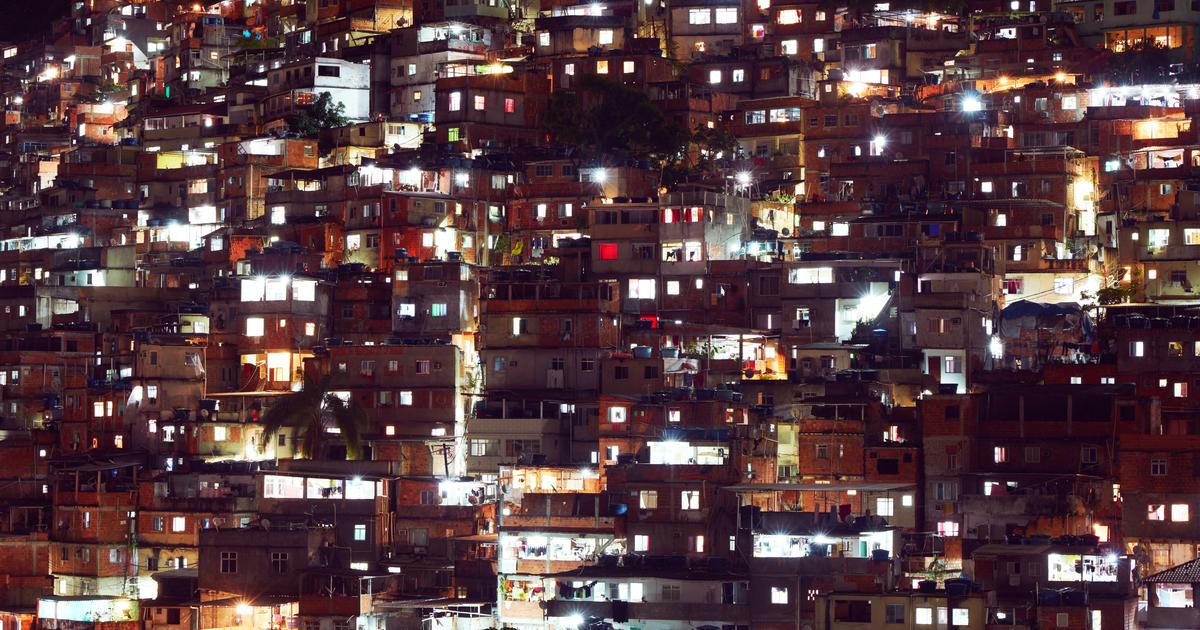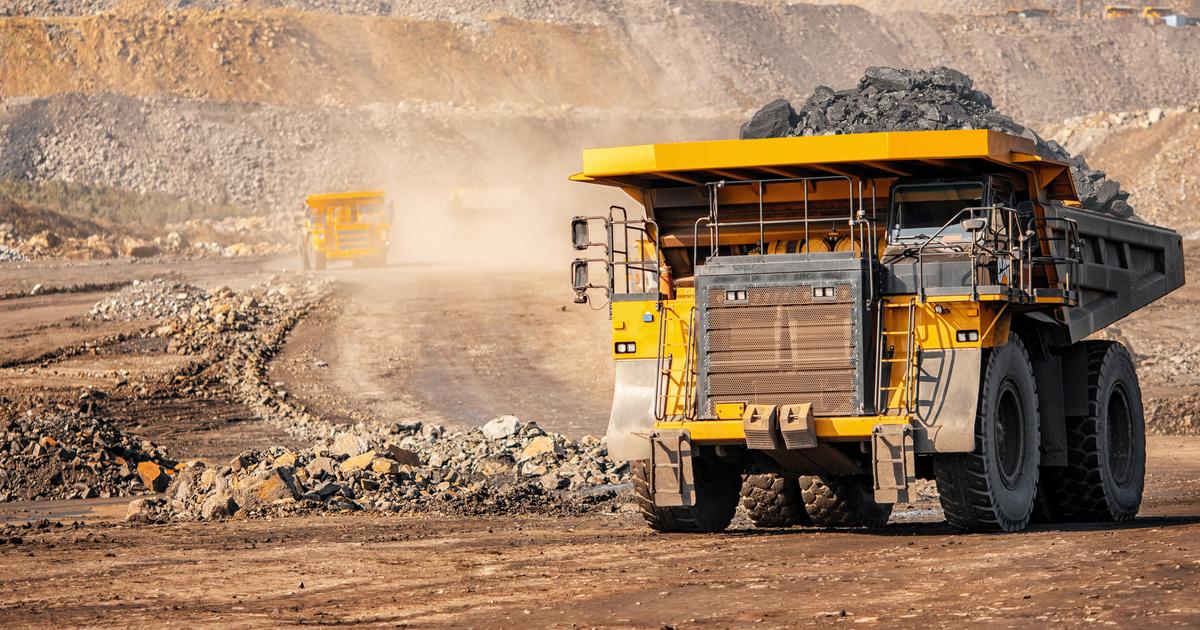Bolivian researcher Carlos Machalaba landed in Liberia a month ago. Then, the coronavirus had already begun to be discussed, although it was weeks before it was classified as a pandemic. But the country's authorities did not wait. "We are in Ebola mode," they snapped at Machalaba while they took his temperature at the airport and when they made him wash his hands before entering any building. Ebola left 2,337 dead after the 2014 outbreak in this country of four million inhabitants. "They have a very recent nightmare and don't want to relive it," says this emerging disease specialist.
The continent has many lessons learned when it comes to viruses. But it also suffers from many weaknesses as a result of more than precarious health systems, large numbers of people crowded into informal homes, and extreme difficulty in getting medicines and vaccines to the entire population due to poor infrastructure. This same scenario is repeated in other parts of the globe. In Latin America and the Caribbean, one of the regions of the world with the greatest inequalities in terms of access to the health system; in India, and even on the remote Pacific islands. In the face of a virus that is not yet known if it is seasonal and how it will react to high temperatures, the fear of what will happen in the world if developing countries are unable to contain it is real.
MORE INFORMATION
- The world has to prepare for the next great lethal pandemic
- How to prevent the next pandemic
- A new philanthropic fund is born to get and speed up treatments against emerging diseases
"You know what? That infectious diseases had always been thought of as something that happens only to the poor. But now, we are seeing that viruses do not distinguish between north and south and if developing countries do not stop the crisis, globalization will do its part and infections will continue throughout the world, that is what the global village is all about, ”he explains from Kenya Githinji Gitahi, CEO of Amref, an African organization dedicated to supporting and strengthening health systems that in 2018 received the Princess of Asturias Award. The continent already has 1,200 confirmed cases (0.4% of the global total). The Secretary General of the World Health Organization (WHO), the Ethiopian doctor Tedros Adhanom Ghebreyesus, has already warned: "Africa must prepare for the worst, my continent must wake up."
Aware of the planetary threat posed by a non-unitary response to the coronavirus, several mechanisms have been put in place. The WHO put the investment needed to fight this outbreak at $ 675 million. Its director general asked for it so that "the most fragile health systems can detect, diagnose and care, prevent further transmission between people and protect health workers." At the end of January, the WHO already started training specialists from the most vulnerable places to deal with this crisis. This action joins the dozens of initiatives carried out by local organizations throughout the continent, such as that of the NGO Shining Hope for Communities which, since this week, is installing sources and taking the temperatures of the inhabitants of Kibera, one of the largest slums of the world. "In those places where they already suffer from deficiencies in the infrastructures, equipment and medical personnel, it may happen that, due to other illnesses, medical attention is not available or essential services such as vaccinations are interrupted," recalls Blanca Carazo, from Unicef Spain, in an agency note last Friday.
Two weeks ago, the World Bank announced the disbursement of $ 12 billion to face health and economic challenges around the world. And the Bill & Melinda Gates Foundation recently reported the creation of a $ 125 million fund, along with another philanthropic organization and Mastercard, to support treatment research and, most importantly, to ensure they reach emerging economies. "National priorities are important, but at the moment they are as important as the global vision. Everyone has to make their contribution because, as we have already seen, pathogens do not respect borders," explained in a conversation with this newspaper the Dr. Samia Saad, expert with extensive experience in global health and epidemics from the Gates Foundation.
"When designing a health system, one of the objectives is to resist adversity. Those in low-income countries are clearly not ready for it, "adds Gitahi. The doctor explains that they are already implementing policies such as asking people to stay home and not go to the doctor and train health workers to go to all the communities. "Since the collapse here is already something we deal with day by day, measures are being taken in the initial phases of the outbreak," he points out. Morocco, Tunisia and now Rwanda have already ordered the confinement of the population in their homes.
Gabriel Díez, from the Spanish NGO Anesvad, sums it up in one word: “Uncertainty”. For the expert, who works in Togo, Benin, Ivory Coast and Ghana, this may be the occasion to test the funds that were invested in the region to train professionals after the latest Ebola epidemic. "Ivory Coast has just announced measures such as border control or free tests, but even in Spain we are seeing that not all suspicious cases can be tested, so we do not really know what is happening," he clarifies. phone.
It is not easy to wash your hands
Health authorities have not stopped repeating that washing hands is the best weapon to stop transmission. Well, according to the latest data collected by Unicef and the WHO, in sub-Saharan Africa only 15% have access to a regular supply of water and soap. In general, in the group of least developed countries, the average is 27%. This if we take into account the available data, because what happens in huge regions of the planet, is that the figures do not even exist because nobody has collected them. Only 70 countries have updated and comparable statistics over time. India, one of the most overpopulated countries and with lack of decent housing, does not provide data to this report.
We are seeing that viruses do not distinguish between north and south and if developing countries do not stop the crisis, globalization will do its part and infections will continue worldwide
Most of those who lack these services live in rural areas. But what is even more worrying is that one in four health centers in the world lacks basic water services, which affects more than 2 billion people, also according to another report by the WHO and UNICEF. Nor should we forget that in the most disadvantaged countries they have been fighting their own battles for decades. Against other respiratory diseases, such as tuberculosis (which kills 1.5 million people each year and whose international day is celebrated tomorrow, March 24), but also against dengue, malaria and AIDS.
Nigerian doctor Adaora Okoli related in an article published a few days ago in EL PAÍS what she lived in her country and all the countries around her with the 2014 Ebola epidemic. “Without adequate funds, hospitals did not have enough beds nor isolation treatment units for all victims. Given the lack of options, the relatives of the Ebola victims disobeyed the orders of the governments and abandoned their infected and still contagious corpses in the streets, ”he recounted. For this doctor, who also became infected and survived Ebola, it is urgent to create an international fund destined specifically for health emergencies.
In an article, health and economics experts from the Center for Global Development David Evans and Mead Over analyzed the limited number of cases that have been detected so far in Africa and Latin America: “It is possible that if you do not act aggressively, the spread in poorer nations it may come later, even when the epidemic is controlled in higher income countries. ”
Cold weather is coming to Latin America, the flu season is beginning and vaccination levels are generally very low. This is added to the fact that some of its leaders are not taking scientific recommendations too seriously. The President of Mexico, Andrés Manuel López Obrador, scoffed a few days ago at the distancing measures and recommended that people continue hugging each other. Meanwhile, in Brazil, President Jair Bolsonaro calls the crisis "hysteria". According to UN data, three out of ten people in the Americas do not have access to health services for economic reasons.
The figures show that the virus increases its lethality from the age of 80 and that young people without previous pathologies generally overcome the disease even without symptoms. With these data in hand, Africa, where only 3% of its population is over 65, plays with a certain advantage. But this does not happen in all low and middle income countries. “Unlike Africa, there are countries with an aging population in the region. Also, although they may have experience with infectious diseases or emergencies such as earthquakes, the way they have dealt with them in the past is also not very encouraging. The most important problem is that they do not have detection capacity, ”says Amanda Glassman, an expert in public health financing at the Center for Global Development, who has analyzed this crisis in recent weeks. Another negative precedent: Zika. This virus was detected in Brazil in May 2015 and in just eight months it infected 1.3 million people in the Latin American country.
“To this must be added the political instability that the region is experiencing. Venezuela, for example, is in a very vulnerable position. " The country registered in 2019 the largest increase in malaria cases in the world, a declining disease on the continent from which they declared themselves free, when Argentina and Paraguay have just managed to eradicate it. "Things in the region move very slowly. Furthermore, there is no universal health coverage and the option of teleworking here is practically impossible. It is a continent that lives on the informal economy ”, adds Glassman. The World Economic Forum published in 2017 that for the first time, the continent was outperforming Sub-Saharan Africa in the shadow economy. More than 130 million Latin Americans have informal jobs.
If the coronavirus arrives here, the concept of confinement is not possible. Here four and five adults sleep in the same room, several children in the same bed ...
The feeling of isolation and protection that the islands give remains in that, in a sensation, when talking about a highly contagious virus. The WHO asked this March 17 for "urgent and aggressive" measures in the Asian region, after confirming half a thousand cases in eight countries. Thailand, Indonesia and India are the most affected. There, too, the leaders take iron from the matter. The President of the Philippines, Rodrigo Duterte, assured in a press conference that "there is no need to fear this coronavirus thing." The country of 110 million inhabitants has carried out 1,269 tests to date.
Papua New Guinea detected its first confirmed case on Friday: a citizen who came from Spain. The Spanish ISGlobal researcher Camila González works there and defines rural medical centers in that country as "sheet metal and wooden buildings in which there is no electricity, in which at night you have to light up with your mobile flashlight." “If the coronavirus arrives here, the concept of confinement is not possible. Here four and five adults sleep in the same room, several children in the same bed ... ".
The scientist tells this through WhatsApp audios while trying to find a connection that will bring her back to Spain. His experience makes him pessimistic: “Here there is not even the capacity for analysis. There is only one private laboratory in the capital. If overcoming this depends on the logistical capacity of the country, this is going to be a disaster. "
And what about the refugee camps
This week, organizations like Oxfam warned of the "devastating" crisis that the arrival of the coronavirus in the refugee camps can entail. Places where hundreds or even thousands of people are crowded, with few possibilities of hygiene and little access to health. At the moment there is already a case detected in Lesbos, in Greece, which has caused the Government to prohibit entry to these settlements. But it is in developing countries that these fields are most concentrated. One of them is Kakuma, in Kenya, where an estimated 200,000 people fleeing conflict and violence from South Sudan, the Democratic Republic of the Congo or Somalia live. Just a few weeks ago, the scientist of Spanish origin Rafael Castañeda visited him on the occasion of a project carried out by the University of Geneva. "This population is going to be in shock . The UN is concerned about what will happen to this population. The set of risk factors, including exposure to other diseases such as AIDS, tuberculosis or malnutrition, makes these thousands of refugees to be a focus of concern, "he assured by telephone. The expert explains that there is an international call for them not to forget them, "despite the fact that each country right now is pulling a little towards its own." Castañeda states that a series of questions are now going to arise that will have to be solved urgently: "How is a quarantine carried out in a field? How will the tests get there? All these are questions that must be solved "
You can follow PLANETA FUTURO on Twitter and Facebook and Instagram, and subscribe here to our newsletter.



/cloudfront-eu-central-1.images.arcpublishing.com/prisa/GX6T7JPQYZMTYR575K7UVIU6V4.jpg)


/cloudfront-eu-central-1.images.arcpublishing.com/prisa/OMNV4ZLY2JGBRHSCJAKGJP5L3E.jpg)

